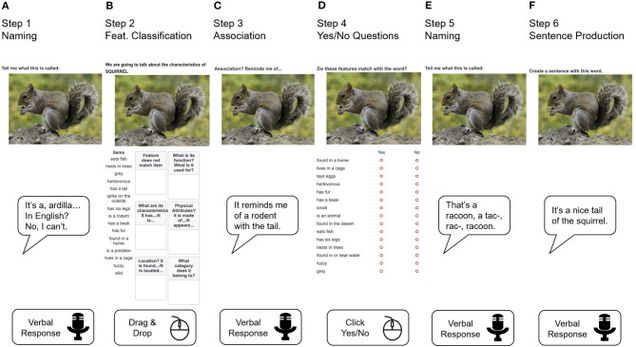Daniel Marcelo’s Story
In honor of National Stroke Awareness Month, we would like to highlight the story of Daniel Marcelo, a stroke survivor who started language therapy with the BU Center for Brain Recovery in 2022 as part of a randomized, controlled clinical trial entitled “Predicting Rehabilitation Outcomes using Computational Modeling (PROCoM)”.
If you would like to learn more about PROCoM, please read our article, “Advancing Bilingual Aphasia Treatment With Boston University Researchers’ PROCoM Projects”.

Daniel Marcelo
Daniel Marcelo is a bilingual (Spanish/English) American living in Querétaro, Mexico. Daniel is a husband and father of three children and he works as a professor of International Business at Tecnológico de Monterrey in Campus Querétaro, in the city of Querétaro, Mexico.
Daniel’s Stroke
On the day of Daniel’s stroke in February 2022, he began to realize something was wrong when he lost feeling in his right arm and was washed over with a strange sensation that made him wonder if he was dreaming. The only word he could make out to call for his wife in the other room was “help” in English.
In the 30 minutes that it took to get to the hospital, Daniel could notice his language disappearing. It was in the emergency room that he and his family learned he was experiencing a stroke.
After initial release from the hospital, Daniel could only speak two words: one in Spanish, “somos”, and one in English, “Pfizer”. He found himself just repeating those two words. His prognosis was uncertain at the time, but his neurologist recommended that he begin his recovery journey with speech therapy.
Language Therapy
In the same week as Daniel’s stroke, his wife discovered Dr. Swathi Kiran, founding Director of the BU Center for Brain Recovery (CBR), through her TEDx Talk, “The future of rehabilitation”. In which, Dr. Kiran explains what the future of brain recovery and stroke rehabilitation will look like and how technology can assist in making rehabilitation more personalized. After Daniel’s wife came across the video, she wrote to Dr. Kiran about Daniel’s condition and heard back from her the next day.
Daniel began language therapy in-person at home in Querétaro with Centro de Rehabilitación Integral de Querétaro, as well as virtually with the BU Center for Brain Recovery. Daniel practiced language and speech in 1:1 sessions with CBR team members Isaac Falconer, PhD and Manuel Marte, PhD Candidate.

In Daniel’s language therapy sessions, he practiced categorization, repetition, naming exercises, and storyboarding numerous times each week in order to recover his language. With Isaac, Daniel was able to practice his English, and in sessions with Manuel, he practiced both English and Spanish. He also participated in CBR research studies as a bilingual participant, contributing to our understanding of bilingual aphasia.

Daniel’s Life Now
In November of 2023, about a year and a half after his stroke, Daniel was able to return to teaching full-time as a professor of International Business at Tecnológico de Monterrey in Mexico. It was a bit of a challenge for him at first to speak in front of so many people again, but he found that language therapy equipped him with the tools to succeed and his students were very understanding. To this day, Daniel is still a professor at Tecnológico de Monterrey, where both he and his students have continued to notice his language improvements over the years.
“I experienced the miracle of neuroplasticity in a period of 3 years, and it changed me for the better, I’m very grateful… The human brain is an unfathomable mystery, but is up to us to live our lives to the fullest, every moment counts.”
– Daniel Marcelo
Daniel’s Advice
If you or a loved one have experienced a stroke, Daniel would suggest starting language therapy as soon as possible. Beginning with phonemes (or the basic unit of sounds in language), and working on structure and repetition. For Daniel, he was able to practice his language through prayer, singing his favorite songs, and by completing puzzles.
Daniel also took this experience as an opportunity for him to focus more on health and exercise, as well as his relationship with spirituality. He found the spiritual dimension to be very important for his journey, helping him to continue on and not lose hope.
Daniel shared that he never quite understood the importance of language until his stroke. He had previously taken the connection between human beings for granted, but he now recognizes the miracle of communication.